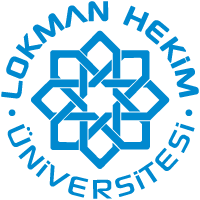Assessment of in vitro antigenotoxic effect of nigella sativa oil [Nigella sativa yağının in vitro antigenotoksik etkisinin değerlendirilmesi]
Özet
Objectives: Cyclophosphamide (CP) is an alkylating agent widely used as an antineoplastic and immunosuppressive agent. The genotoxicity of CP has been studied in a variety of in vivo and in vitro systems and is routinely used as a positive control in genotoxicity tests. Traditional medicine Nigella sativa L., (N. sativa), Ranunculaceae family, especially in the Eastern Mediterranean countries, especially in many countries, and is widely used in many countries as a spice and folk medicine since the time of Dioscorides used as a plant. In this study, it was aimed to show the protective effects of N. sativa oil at different concentrations against the genotoxic effects of CP by micronucleus test. Materials and Methods: For this purpose, healthy cells were treated in vitro with N. sativa oil at concentrations of 1, 5, 10 µg/mL and CP as positive control for 68 hours. The micronuclei were then counted. Results: No significant increase in micronucleus frequency was observed when the application of N. sativa oil at concentrations of 1, 5, 10 µg/mL compared with the negative control. There was a decrease in the number of micronucleus in all three concentrations (1, 5, 10 µg/mL) compared to the CP group in the groups treated with N. sativa oil and CP. Conclusion: It has been shown that N. sativa oil may have protective effects against genotoxicity agents in vitro. But more work is needed to understand the mechanism of the genotoxicity effects of N. sativa oil. ©Turk J Pharm Sci, Published by Galenos Publishing House.

DSpace@LokmanHekim by Lokman Hekim University Institutional Repository is licensed under a Creative Commons Attribution-NonCommercial-NoDerivs 4.0 Unported License..













